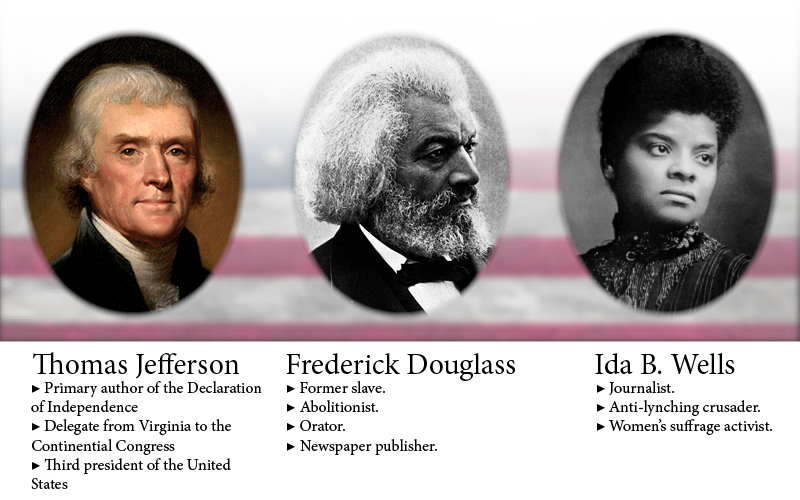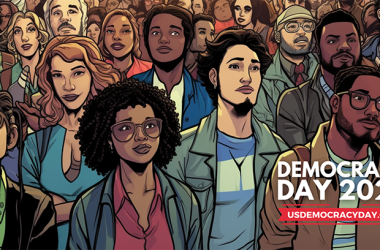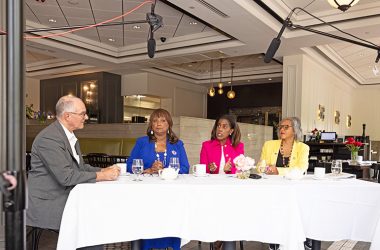Happy Fourth of July!
This weekend we are continuing the longstanding tradition of marking the founding of our nation, but with a different approach this year because of the coronavirus pandemic.
To help mark this time of celebration, the Homewood-Flossmoor Chronicle and 23 Miles South Theatre are presenting the words of three of history’s powerful voices advocating for freedom and equality: Thomas Jefferson, Fredrick Douglass and Ida B. Wells. The Douglass and Wells pieces were chosen because they are especially appropriate during a time when there is renewed demand for racial equality.
We start with an excerpt from the Declaration of Independence read by Michael Kocher. It’s familiar to everyone, but hearing it spoken enhances the ideals that are the cornerstone of the country.
Next, Gabriel McKinney and Logan Roberts will read selections from Frederick Douglass’ iconic Fourth of July speech, “What to the Slave is the Fourth of July,” delivered on July 5, 1852, at the invitation of the Ladies Anti-Slavery Society of Rochester, N.Y.
Finally, Ann-Marie Webster will read “Lynching: Our National Crime,” delivered by Ida B. Wells in New York on June 1, 1909, to the National Negro Conference.
Michael Kocher reads the opening of the Declaration of Independence, the cornerstone of the nation’s ideals. The document was primarily authored by Thomas Jefferson, approved on July 2 and revised by members of the Continental Congress before it was officially adopted on July 4, 1776. The final version did not include a passage Jefferson, a slaveholder, wrote explicitly disavowing slavery.
Gabriel McKinney reads excerpts of the first part of Frederick Douglass’ speech, “What to the Slave is the Fourth of July.” Douglass spent the first quarter of his 10,400-word speech lauding the wisdom and courage of the founding fathers in establishing and fighting for the principles of freedom and equality.
Douglass then turns to a thunderous condemnation of the nation for failing to live up to the founders’ vision. Logan Roberts delivers Douglass’ lament of slavery’s evils and the evil of white complacency and complicity with the institution.
Ann-Marie Webster gives us excerpts of Ida B. Wells’ 1909 speech demanding an end to lynching. Wells was a relentless investigative journalist who made it her life’s work to end lynching, a mission she embarked on after losing three friends to mob violence. These words reiterate that the project of pursuing freedom and equality for all is one that the country strives to bring to fruition all these many years later. We applaud all our neighbors who give their time and talent serving as elected representatives. And, we salute Americans in our communities and across the 50 states who are rising up asking what can be done today to make the country work for all its citizens.
Thank you for joining us for this online celebration, and have a great Independence Day!
Links
These historic documents are long for online video formats, but here are links to the texts for those who would like to see the words as presented.
Credits
This project was put together in just a few days. The actors did not have time to rehearse, so these are virtually one-take readings. We are grateful for the contributions of those who came together to make it all work:
- Anne Colton, videography.
- St. Paul Community Church, location.
- Erin Roeper and Marge Massarello, speech selection.
- Dawn Peloso of 23 Miles South Theatre, actor coordinator.
- Marilyn Thomas and Tom Houlihan of the H-F Chronicle, editing.
- Actors Kaylee Grage, Michael Kocher, Gabriel McKinney, Logan Roberts and Ann-Marie Webster.




